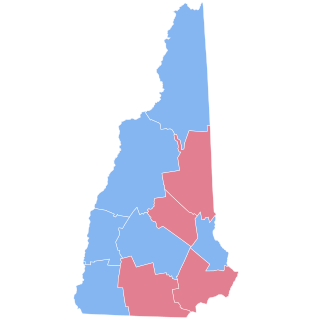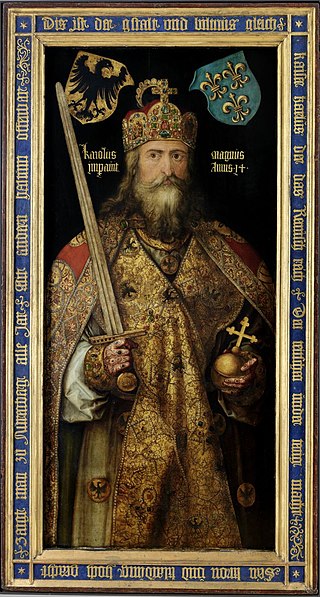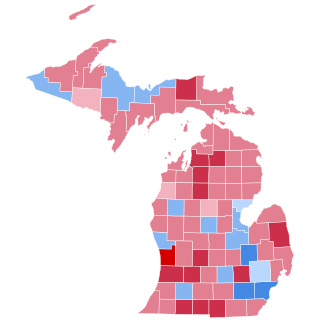Related Research Articles

A family tree, also called a genealogy or a pedigree chart, is a chart representing family relationships in a conventional tree structure. More detailed family trees, used in medicine and social work, are known as genograms.

From January 14 to June 8, 2004, voters of the Democratic Party chose its nominee for president in the 2004 United States presidential election.

The 2004 presidential campaign of John Kerry, the longtime U.S. senator from Massachusetts, began when he formed an exploratory committee on December 1, 2002. On September 2, 2003, he formally announced his candidacy for the Democratic nomination. After beating John Edwards, Howard Dean, Wesley Clark, and other candidates in the primaries, he became the Democratic nominee, challenging Republican incumbent George W. Bush in the general election. Kerry selected Edwards as his running mate.

The 2004 presidential campaign of George W. Bush, the 43rd president of the United States, announced his candidacy for re-election as president on May 16, 2003. On September 2, 2004, he again became the nominee of the Republican Party for the 2004 presidential election. Along with his running mate, Vice President Dick Cheney, President George W. Bush was opposed in the general election by U.S. Senator John Kerry of Massachusetts, minor candidates from other parties. The election took place on Tuesday, November 2, 2004.
The following is a timeline of events during the 2004 U.S. presidential election:
The United States presidential election debates were held in the 2004 presidential election. Three debates were held between Republican incumbent George W. Bush and Democratic candidate John Kerry, the major candidates, and one debate was held with their vice presidential running mates, incumbent Dick Cheney and John Edwards. All four debates were sponsored by the non-profit Commission on Presidential Debates (CPD), which has organized presidential debates since its establishment in 1987.

Harold McEwen Ickes is the former White House Deputy Chief of Staff for President Bill Clinton. He was a leading figure in the Clinton administration's healthcare reform initiative.

In genealogy, pedigree collapse describes how reproduction between two individuals who share an ancestor causes the number of distinct ancestors in the family tree of their offspring to be smaller than it could otherwise be. Robert C. Gunderson coined the term; synonyms include implex and the German Ahnenschwund.

The 2004 United States presidential election was the 55th quadrennial presidential election, held on Tuesday, November 2, 2004. The Republican ticket of incumbent President George W. Bush and his running mate incumbent Vice President Dick Cheney were elected to a second term, defeating the Democratic ticket of John Kerry, a United States senator from Massachusetts and his running mate John Edwards, a United States senator from North Carolina.

The 2004 United States presidential election in Illinois took place on November 2, 2004, and was part of the 2004 United States presidential election. Voters chose 21 representatives, or electors to the Electoral College, who voted for president and vice president.

The 2004 United States presidential election in Connecticut took place on November 2, 2004, and was part of the 2004 United States presidential election. Voters chose seven representatives, or electors to the Electoral College, who voted for president and vice president.

The 2004 United States presidential election in New Hampshire took place on November 2, 2004, and was part of the 2004 United States presidential election. Voters chose four representatives, or electors to the Electoral College, who voted for president and vice president.
Harold Brooks Baker, was an American-British financier, journalist, and publisher, and self-proclaimed expert on genealogy.

A royal descent is a genealogical line of descent from a past or present monarch.
The Secret Rulers of the World is a five-part documentary television series produced by World of Wonder and written, directed by, and featuring Jon Ronson. It was first shown on the British Channel 4 in April and May 2001. The series details Ronson's encounters with conspiracy theorists and accompanies his 2001 book Them: Adventures with Extremists, which covers similar topics and describes many of the same events.

The 2004 United States presidential election in Maryland took place on November 2, 2004, and was part of the 2004 United States presidential election. Voters chose 10 representatives, or electors to the Electoral College, who voted for president and vice president.

The 2004 United States presidential election in Michigan took place on November 2, 2004, and was part of the 2004 United States presidential election. Voters chose 17 representatives, or electors to the Electoral College, who voted for president and vice president.

The 2004 United States presidential election in Kansas took place on November 2, 2004 as part of the 2004 United States presidential election. Voters chose six representatives, or electors to the Electoral College, who voted for president and vice president.

The 2004 United States presidential election in Montana took place on November 2, 2004, and was part of the 2004 United States presidential election. Voters chose three representatives, or electors to the Electoral College, who voted for president and vice president.

Reptilians are supposed reptilian humanoids, which play a prominent role in fantasy, science fiction, ufology, and conspiracy theories. The idea of reptilians was popularised by David Icke, an anti-semitic conspiracy theorist who claims shapeshifting reptilian aliens control Earth by taking on human form and gaining political power to manipulate human societies. Icke has stated on multiple occasions that many world leaders are, or are possessed by, so-called reptilians.
References
- ↑ The New York Times: Chronicle. October 28, 1996.
- ↑ The Guardian: Kerry's royal roots will give him victory, says Burke's. August 17, 2004.
- ↑ USA Today: Royal authority Harold Brooks-Baker dies. March 6, 2005.
- ↑ "Harold Brooks-Baker". The Daily Telegraph. 8 March 2005.
- ↑ "Is the Queen really a descendant of Prophet Mohammed?". The Week. 12 April 2018.
- ↑ Adams, Cecil (21 August 1987). "How You Can Always Have More Ancestors as You Go Back in Time" . Retrieved 28 February 2012.
- ↑ The New York Times: Royal Genes Too Diluted to Help Bush. July 21, 1988.
- ↑ David Icke (2003). Tales from the Time Loop. Bridge of Love Publications. p. 24.
- ↑ Thom Burnett (pseud.) (2006). Conspiracy Encyclopedia: The Encyclopedia of Conspiracy Theories. Collins & Brown. p. 275.